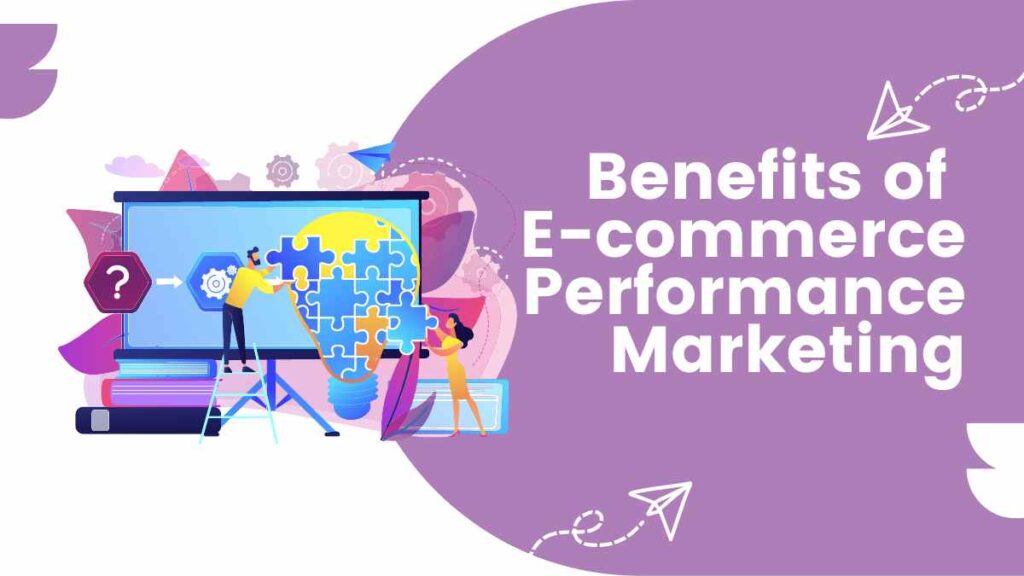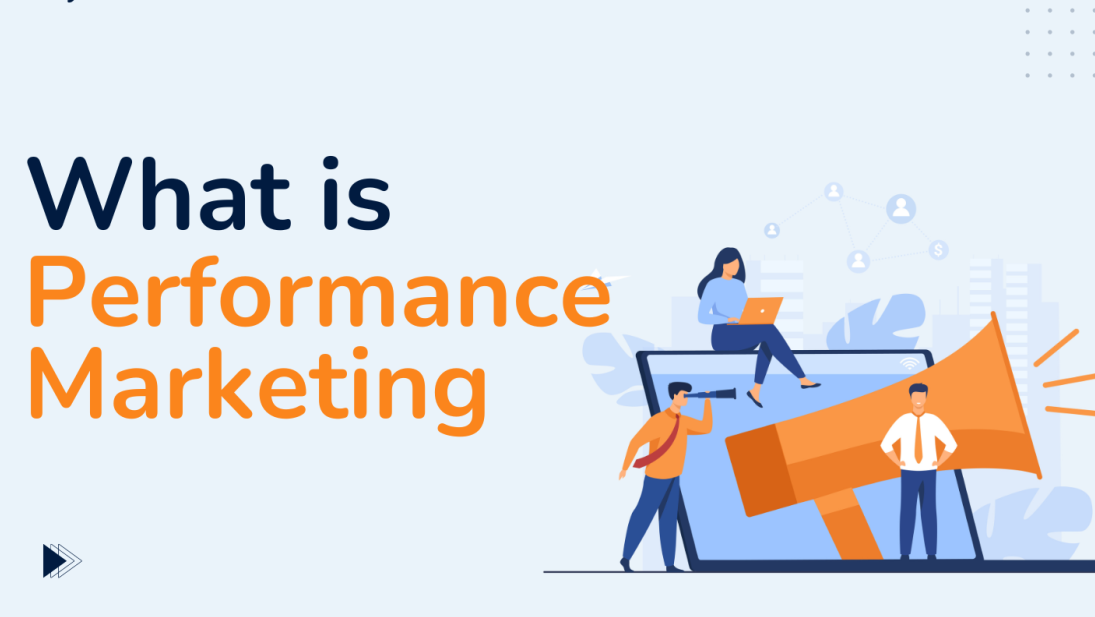- Have any questions?
- +91 96020 93137
- +91 93525 62080
- info@worldseoservices.com
The Impact of Performance Marketing on E-Commerce Success

How AI and Automation are Shaping the Future of Performance Marketing
November 19, 2024
10 Common Mistakes to Avoid in Performance Marketing Campaigns
November 19, 2024In the fast-paced world of e-commerce, where competition is fierce and customer preferences evolve quickly, businesses need to find ways to effectively attract, engage, and convert customers. By focusing on measurable results and outcomes, performance marketing has become an essential strategy for driving e-commerce success.

At World SEO Services, we understand how the impact of performance marketing on e-commerce success is profound, and how implementing the right tactics can propel your business forward in a crowded digital marketplace.
What is Performance Marketing?
Performance marketing is a results-driven approach where advertisers pay based on specific actions such as clicks, leads, conversions, or sales. Unlike traditional marketing, which focuses on brand awareness and reach, performance marketing is highly measurable, allowing businesses to track and optimize campaigns in real-time. Common types of performance marketing include pay-per-click (PPC) advertising, affiliate marketing, social media ads, and influencer marketing.

For e-commerce businesses, the effectiveness of performance marketing is essential. It allows brands to focus on acquiring customers efficiently while keeping a close eye on the cost-effectiveness of each campaign. By paying only for successful outcomes, performance marketing minimizes waste and ensures that the marketing budget is well spent.
How Performance Marketing Drives E-Commerce Success
1. Targeted Customer Acquisition
One of the greatest advantages of performance marketing is its ability to reach a highly targeted audience. By using data analytics and advanced targeting options, performance marketing platforms like Google Ads, Facebook Ads, and affiliate networks can pinpoint potential customers based on their interests, browsing behavior, demographics, and purchasing habits.
For e-commerce businesses, this means reaching people who are more likely to make a purchase rather than casting a wide net and hoping for the best. With performance marketing, you can tailor campaigns to specific customer segments, ensuring that your ads are shown to individuals who are most likely to convert. This targeted approach increases the chances of higher-quality traffic and more sales.
2. Measurable Results and Data-Driven Decisions
The performance marketing model allows e-commerce businesses to track every dollar spent and measure its direct impact on sales and conversions. By tracking metrics such as click-through rates (CTR), conversion rates, return on ad spend (ROAS), and customer acquisition cost (CAC), businesses can easily determine the effectiveness of their campaigns.
This data-driven approach means that marketing decisions are based on actual performance rather than assumptions or guesswork. E-commerce brands can continually refine their strategies based on real-time insights, adjusting ad creative, bidding strategies, and targeting to maximize results.
3. Cost Efficiency and ROI Optimization
For e-commerce businesses, maintaining a positive return on investment (ROI) is crucial. Performance marketing allows brands to pay for actual results—whether that’s a click, a sale, or a lead—ensuring that their marketing budget is only spent on what works.
Unlike traditional forms of advertising, which may result in high costs with uncertain outcomes, performance marketing ensures that you’re only paying for the actions that contribute directly to your business goals. By tracking performance and adjusting strategies based on data, businesses can optimize campaigns for better ROI and allocate their budget more effectively.
4. Flexibility and Scalability
Another key benefit of performance marketing for e-commerce businesses is its flexibility and scalability. Since performance marketing campaigns can be continuously monitored and adjusted, e-commerce businesses can scale their efforts based on what is working.
For example: If a particular ad or campaign is yielding a high number of conversions, businesses can increase their budget to drive more sales. Conversely, if a campaign is underperforming, adjustments can be made in real-time to reduce waste and optimize results. This scalability makes performance marketing a highly adaptable strategy for e-commerce brands of all sizes, from startups to established enterprises.
5. Boosting Customer Retention with Remarketing
E-commerce businesses often focus heavily on customer acquisition, but customer retention is just as important. Performance marketing supports retention strategies, particularly through remarketing campaigns. Remarketing allows businesses to target previous visitors or customers who have interacted with the brand but haven’t completed a purchase.
By using tools like Google Display Network or Facebook Ads, e-commerce brands can show personalized ads to these users, reminding them of products they viewed or offering incentives like discounts. This kind of targeted remarketing can significantly boost conversion rates and ensure that customers return to complete their purchases, increasing lifetime customer value.
6. Affiliate and Influencer Marketing
Performance marketing’s affiliate and influencer marketing segments are particularly valuable for e-commerce businesses looking to tap into new audiences.
Affiliate marketing allows e-commerce brands to partner with affiliates who promote their products on a commission basis. Since affiliates are only paid when they generate sales or leads, this model is a win-win for both parties.
Influencer marketing, a subset of affiliate marketing, enables e-commerce businesses to collaborate with influencers who have a significant following in their niche. Influencers can drive targeted traffic to your e-commerce site, and with the performance marketing model, you only pay for measurable results such as purchases or sign-ups.
7. Enhanced Ad Customization
Performance marketing platforms provide the ability to create dynamic, customized ads that speak directly to your target audience. E-commerce brands can tailor ad copy, imagery, and even product recommendations based on user data and behavior.
For example: Google and Facebook offer dynamic ad formats that automatically display products to users based on their previous searches or interactions with your brand. This level of customization not only increases the likelihood of conversion but also creates a more personalized shopping experience, which can foster customer loyalty.
The Future of Performance Marketing in E-Commerce
As the digital marketing landscape continues to evolve, the impact of performance marketing on e-commerce success will only increase. With advancements in artificial intelligence (AI), machine learning, and automation, e-commerce businesses will be able to take their performance marketing campaigns to the next level.

AI and automation will allow marketers to optimize campaigns in real-time, predict customer behavior, and deliver even more personalized experiences to potential buyers. Additionally, the growing importance of mobile commerce, voice search, and social commerce will continue to shape how performance marketing is executed across multiple platforms.


